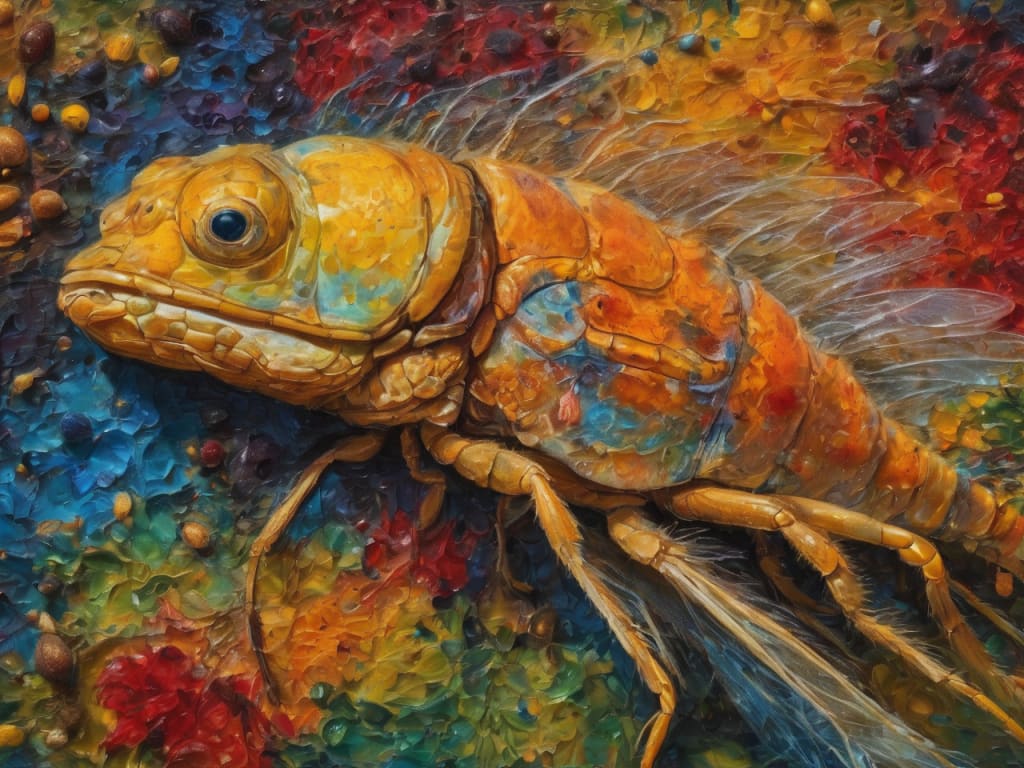
Survival in the natural world takes on numerous forms, and one of the most intriguing and peculiar strategies is parasitism. In this exploration, we delve into the realm of organisms that thrive by taking resources from others, often at the expense of their hosts. From tongue-invading crustaceans to DNA-stealing flowers, the bizarre world of parasites unfolds, revealing the unique adaptations and strategies that have evolved for survival.
1. Tongue-Biting Isopods: An Unsettling Mouthful
Meet the tongue-biting isopods, crustaceans of the Cymothoa genus, infamous for their peculiar choice of residence – a fish's mouth. These parasitic invaders start as free-swimming larvae, settling in a fish's gills and, if the mouth is unoccupied, biting down on the fish's tongue. The male isopod transforms into a larger female, residing in the fish's mouth and feeding on its blood, while additional males take refuge in the gills. This bizarre cohabitation results in a compromised host, struggling to breathe and facing reduced health.
2. Deforming Amphibians: The Worm's Grim Influence
In northern California, malformed amphibians with twisted and missing limbs raised concerns among scientists in a 2002 study. The culprit was identified as Ribeiroia, a type of trematode flatworm. The complex life cycle of these parasites involves infecting snails, swimming larvae seeking tadpoles or salamanders, and disrupting limb development. The correlation between high Ribeiroia numbers and leg deformities in amphibians raises questions about the impact of environmental changes on these parasitic infections.
3. Host Manipulation: Worms That Dictate Behavior
Leucochloridium, another genus of trematodes, exhibits host manipulation by invading snails' eyestalks. The parasitic worms transform the snails' eyes into pulsating broodsacs resembling attractive caterpillars. This manipulation compels infected snails to become more active and remain in the open, making them easier prey for birds – the intended hosts of the parasitic larvae.
4. Crab-Controlled Barnacles: A Macabre Puppeteer
Rhizocephala, parasitic barnacles, take over the bodies of crabs, manipulating their behavior to serve the parasites' reproductive needs. The female barnacle infiltrates the crab's exoskeleton, giving birth to larvae that attach to the crab's externa. The parasitic barnacle mimics a brood of eggs, influencing the crab's behavior, genitalia, and hormonal balance. Ultimately, the manipulated host aids in the release of the parasite's larvae into the environment.
5. Corpse Flowers: Symbiotic Beauty and DNA Theft
Rafflesia, the largest flowers on Earth, steal nutrients from grapevines through a parasitic relationship. Lacking roots, stems, or leaves, the corpse flower relies on the grapevine for sustenance while emitting a putrid odor to attract carrion flies for pollination. What sets Rafflesia apart is its peculiar habit of stealing DNA from the grapevines, showcasing a form of horizontal gene transfer that enhances its ability to infiltrate and manipulate the host.
From grotesque mouth invaders to DNA-stealing botanical parasites, the world of symbiotic relationships offers a glimpse into nature's most bizarre survival strategies. These parasites, despite their unsettling tactics, play integral roles in Earth's ecosystems, highlighting the intricacies of coexistence and adaptation. As we unravel the mysteries of these peculiar partnerships, the intricate dance between hosts and parasites continues to shape the diversity and resilience of life on our planet.
About the Creator
Kei Ben
A fresh read goes a long way.






Comments
Kei Ben is not accepting comments at the moment
Want to show your support? Send them a one-off tip.